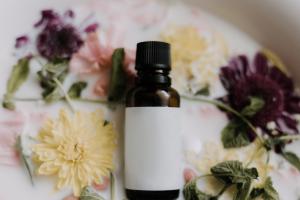For me, as I approach the internet in these dark early-morning hours with all the caution and sarcasm I can muster, it seems we are on the edge of peak decadence, if not rolling wildly down the other side of that predestined slope. The NYTimes published an opinion piece yesterday which, in former times, the wide world would have laughed off the page, but now elicits not a blink of the eye because clicks are a lot easier than thinking.
The reason that all ya’ll like hating on goop is because of the Patriarchy, I kid you not. If it were not for The Patriarchy TM, you would love woo as it deserves to be loved. It is only because of the suppression of women that you, heretofore, have not had any time for goop. Fortunately for you, the NYTimes is here to scold you. I hope you’re grateful. Let’s just take a short gander, shall we, while we wait for Twitter to tell us what on earth is going on with the Iowa Caucuses.
As we go in, though, make sure and click on the actual article, if you have any of your ten free pieces left for the month, and observe Ms. Paltrow surrounded by roses. I can’t imagine what they must have cost, but that’s not the point. It’s the shape that matters. If you don’t know what it is, well, you lead a happy sheltered life and I hate to be the one to ruin it, but it’s time for us all to grow up. Ms. Paltrow is standing in the center of a floral representation of her favorite part of her own anatomy. She herself is poised as the hope of wellness, right there, in the place where wellness is most—and you can see that words are failing me—centered. It’s as though she herself is conflated with that portion of herself, she is really no more than it, which is kind of a tragedy, because, oh never mind. Here’s what the NYTimes has to say:
So what underlies all the overwhelming, predictable, repetitive critiques? What exactly is so awful about a bunch of consenting adults seeking self-knowledge, vitality, and emotional freedom?
The obvious first question is why you think it’s mainly the sex that will lead to self-knowledge, vitality, and emotional freedom? The overwhelming predictability actually goes the other way. You all promise to talk about “Wellness” and “Wholeness” etc. etc. but after about fifteen minutes it’s right back to the sex. Which, get this, is not the best way to seek self-knowledge, vitality, and emotional freedom.
Sex, actually, is the product of other more primary goods. Think of it like Social Justice. Social Justice is usually confused with the actual gospel, as if the two are one and the same, rather than one being the result of the other. There you are, good Christian, toddling along, knowing that you must do good and treat all your fellow person-kind well, that you must love your neighbor and your enemy, but over time you forget the ground by which you have that knowledge. You begin to think that loving your neighbor and your enemy is the main thing, rather than the product of the main thing. You forget that Jesus’ death, resurrection, ascension, and shocking forgiveness of you has to go before any of the forgiving or inclusivity that you might so passionately embrace. You forget your first love and begin to imagine that everything depends on you.
In the same way, this whole culture has misunderstood that sex is attached to something else that actually has to come first in order for it to be meaningful or good—in the fullest most all-encompassing way that you could use the word “good.” Sex inside marriage is one of the curious and complicated means by which married people communicate to each other their prior life-altering commitment. When they are doing “well,” what they do in their bedroom will usually reflect that prior “wellness.” When they are not doing well, the sex will often be the first thing to fall apart, signaling to them both that something is not ok. Sex is the product of their self-sacrificial life together.
So, sex by yourself, or sex in a workshop, or sex with someone you’re not married to, is really like trying to solve all the justice problems in the world without Jesus. Good luck with that.
Skipping over the NYTimes dismissal of the yoni egg debacle, which, honestly, was one of the best internet things of the last fifteen minutes, and deserved all the jokes it got, we come to the crux of the issue—the reason that you hate goop is because of the Patriarchy TM:
The tsunami of Goop hatred is best understood within a context that is much older and runs much deeper than Twitter, streaming platforms, consumerism or capitalism. Throughout history, women in particular have been mocked, reviled, and murdered for maintaining knowledge and practices that frightened, confused, and confounded “the authorities.” (Namely the church, and later, medicine). Criticism of Goop is founded, at least in part, upon deeply ingrained reserves of fear, loathing, and ignorance about things we cannot see, touch, see, authenticate, prove, own, or quantify. It is emblematic of a cultural insistence that we quash intuitive measures and “other” ways of knowing — the sort handed down via oral tradition, which, for most women throughout history, was the only way of knowing. In other words, it’s classic patriarchal devaluation. When 19th-century medicine men were organizing and legitimizing their brand-new profession, they claimed the mantle of “science” even though there was no such thing as evidence-based medicine at the time. In order to dominate the market, they slandered all other modalities as “quackery,” including midwifery, which we know achieved safer birth outcomes back then, as it still does today. Pejoratives like “woo” or “pseudo-science” are still often applied to anything that falls outside of the mainstream medical establishment. (Think about this the next time you hear something harmless or odd or common-sensical dismissed as an “old wives’ tale.”)
“The church, and later, medicine”…I need a laughing gif. That is fantastic. I wish history could still be taught in “The Schools.” No, I’m sorry, NYTimes. Hating on goop is one of the few remaining pleasures of life, and you can pry it out of my cold dead fingers when the world is finally burning.
What does bother me, for real, is the enslaving lie that all you really need is sex and not God. I have watched the first episode of the goop Netflix offering, and it is tragic. Real people are really hurting. Real people are carrying around burdens and shame that they cannot lay down or wash off. They wander up and down, seeking relief, but there is none, only the continual shouting to love themselves. Boy, I wish they would bring me in to do a “Spiritual Weekend.” The shock would be all the vitality they could ever wish for.













